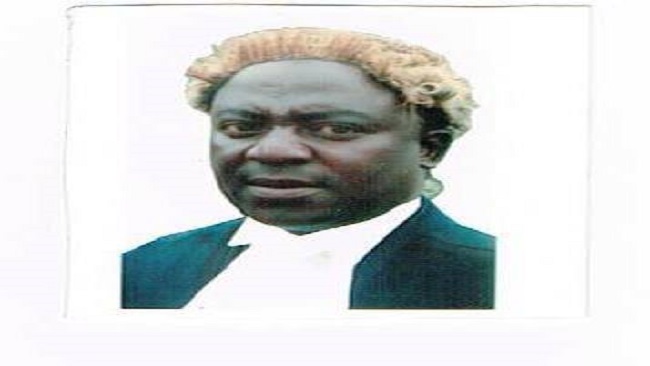Degrading Treatment of Ambazonia’s Barrister Shufai in Yaounde Military Hospital
Separatist leader Blaise Sevidzem Berinyuy, also known as Shufai, was discharged from the hospital and sent back to a high security prison in Yaoundé on May 21, despite his critical health condition and apparently following pressure by the head of the detention facility on medical staff. Transferring Shufai, who is immunocompromised, to a crowded prison setting where transmission of Covid-19 is more likely seriously enhances the threats to his health and life.
On May 16, Shufai, one of the leaders of the separatist group “Ambazonia Interim Government,” was transferred from the prison to the hospital for non-Covid-19-related illness. His family and lawyers said he was unconscious, and his health had deteriorated significantly over the previous 10 days. They reported that on May 19, Shufai was handcuffed to his hospital bed for the night, despite being barely able to move.
Shufai’s family members and lawyers said that the head of the prison visited Shufai twice at the military hospital and pressed medical staff to discharge him, although his condition continues to be alarming. This is despite concerns over the spread of Covid-19 across Cameroon’s overcrowded prisons.
Shufai and nine other leaders of the “Ambazonia Interim Government” were arrested in January 2018 in Nigeria’s capital, Abuja, and forcibly returned to Cameroon. Their extrajudicial transfer was denounced by the United Nations refugee agency, UNHCR, as violating the fundamental principle of non-refoulement. The forced return of the 10 leaders was also declared illegal by a Nigerian court in March 2019. The 10 leaders were later held incommunicado at Cameroon’s State Defense Secretariat prison for six months before being taken to the Yaoundé high security prison. They were charged with terrorism, rebellion, and secession, and sentenced to life before a military court on August 20, 2019, following a deeply flawed trial.
Cameroon has a fundamental obligation to treat all prisoners with humanity and respect, and as the authorities grapple with the Covid-19 pandemic, they should ensure that all prisoners can take measures such as regular handwashing and have proper access to medical care. They should also ensure sick prisoners receive the medical treatment they need and that their health or lives are not further jeopardized by increasing their risk of Covid-19 infection.
Source: Human Rights Watch





